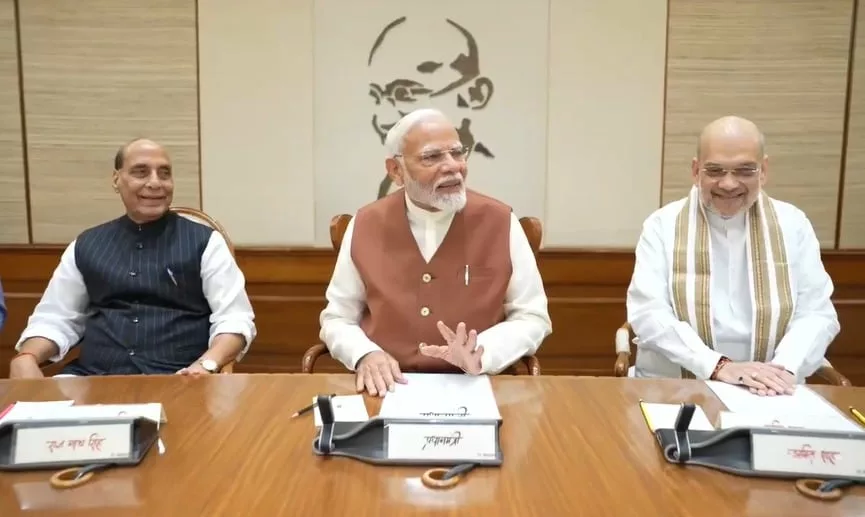Prime Minister Narendra Modi’s cabinet in his historic third term will retain the known faces in the big four ministries – Amit Shah will retain the Home portfolio, Rajnath Singh Defence, Foreign ministry will be retained by S Jaishankar and the Finance ministry by Nirmala Sitharaman. The Prime Minister himself will handle the Ministry of Personnel, Public Grievances and Pensions, the Department of Atomic Energy and the Department of Space.
Many of the ministers have been retained with their last jobs in the interest of continuity as well. Among them is Nitin Gadkari, who will retain the Road Transport and Highways ministry with two juniors under him — Ajay Tamta and Harsh Malhotra. The 67-year-old has been the longest serving minister in the department and has been credited with the building of construction of more than 54,858 km of national highways over the last 10 years.
Piyush Goyal has retained the Commerce portfolio.
JP Nadda, the health minister in PM Modi’s first cabinet, has been brought back with the same portfolio. He has also been given additional charge of the Chemicals and Fertilisers department.
The plum portfolios of I&B and railways will be handled by Ashwini Vaishnaw. The Civil Aviation Ministry has changed hands from Jyotiraditya Scindia to TDP’s Ram Mohan Naidu, the youngest minister in the cabinet. Mr Scindia has been put in charge of the Telecom ministry.
Two former Chief Ministers from the key BJP states of Haryana and Madhya Pradesh, who have been brought to the Centre, have been allocated significant responsibility. Manohar Lal Khattar will handle two key ministries — Power and Housing and Urban Affairs. For the first, he would have the assistance of junior minister Shripad Naik, for the second, Tokhan Sahu, the first-time minister from Chhattisgarh.
Shivraj Singh Chouhan, the four-time Chief Minister of Madhya Pradesh, will handle the key ministry of Agriculture, and the related Farmers Welfare and Rural Development ministries.
Former Minister for Earth Sciences and Food Processing, Kiren Rijiju, has been put in charge of Parliamentary Affairs, previously handled by Pralhad Joshi. Mr Joshi has been moved to the Food, Consumer Affairs and Renewable Energy department.
CR Paatil will be in charge of Jal Shakti ministry and Bhupendra Yadav, Environment. Giriraj Singh has been shifted to Textiles — a department handled by Smriti Irani. Annapurna Devi will be in charge of the other portfolio handled by Ms Irani — Women & Child Development. Mansukh Mandavia has been put in charge of Labour and Employment and Sports and Youth Affairs.
Ravneet Singh Bittu — the grandson of former Punjab Chief Minister Beant Singh who was assassinated in 1995 — will be the junior minster for food processing and railways. Mr Bittu has lost the election from Ludhiana and will have to get a seat in either house of parliament within the next six months.
Among allies, former Bihar Chief Minister and HAM chief Jitan Ram Manjhi will have charge of Micro, Small and Medium Enterprises with Shobha Karandlaje as the Minister of State.
South ally and Janata Dal Secular chief HD Kumaraswamy has been put in charge of the Heavy Industries and Steel portfolios.
Key Bihar ally and LJP chief Chirag Paswan has been given charge of the Food Processing department.
Among the Ministers of State with Independent Charge, Dr Jitendra Singh is expected to be the busiest. A third-time Union minister from Jammu and Kashmir, he has been put in charge of multiple portfolios — Science and Technology, Ministry of Earth Sciences, Personnel, Public Grievances and Pensions, Department of Atomic Energy, Department of Space and the Prime Minister’s Office.
Arjun Ram Meghwal will have Independent charge of for Law and Justice and will also be the junior minister for Parliamentary Affairs.
